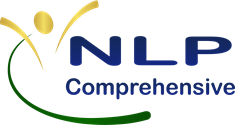I’m very fortunate. Business has been busy and growing. While, like anyone, there are bumps in the road, things are all in all going well.
In fact, I’ve just added new members to my team. One of them is my daughter! It’s really cool when you get to work with someone you already know and respect! I consider myself to be exceptionally lucky in that respect.
We are very much alike in some core areas, like work ethic, honesty, and commitment to excellence.
We are also quite different in some equally important areas. My weaknesses are her strengths, making her skillset the perfect compliment to mine.
Very lucky, indeed.
That being said, there are some challenges to working with family, someone you know so well and have so many existing communication patterns with.
Breaking old habits and creating new ones, setting solid boundaries that both keep the existing respect and honesty while narrowing the focus to business can be…interesting to say the least.
One of the key factors that not only keeps our communication clear is separating outcome from process. Let me tell you what I mean.
My daughter is very process oriented. She is very linear in her thinking, and executes tasks in a very orderly fashion. Step one is always completed before step two, and so on. Task lists are always completed on time and time is planned out in a very logical and intentional way.
It’s really kind of cool to watch this kid that I used to find sleeping on her desk instead of doing her homework so amazing with deadlines and processes now!
I, on the other hand, tend to lean more toward options, free flowing schedules, and getting things done as they get done. This doesn’t mean I don’t do them. It simply means I get sidetracked a bit more often, can complete things in a kangaroo style, where I hop from task to task.
And while my style of completion may be annoying for process oriented people from the outside, it has, thus far, allowed me to get more done during the day than a more structured environment has.
That being said, I get that it may not be a good long term strategy. I know that studies suggest multitasking is inefficient for anyone, I would certainly say that it is less efficient for me now than it used to be. 🙂
So, as I have been training her there is one thing I am constantly being reminded of. My role is to focus on outcome. Hers is to focus on process.
What does that mean?
As managers, executives, parents and spouses we have a tendency to tell people what we want done, and then to proceed to tell them exactly how to do it. It’s human nature. We have to train them on how to do what we’d like them to do. It’s the only way to ensure a satisfactory outcome. Right?
Wrong.
What this actually does is cause stress and ultimately feelings of inadequacy and failure.
Why?
Because we don’t all think the same. Remember your meta-programs. Let’s use my daughter and I as an example. Some of us are process oriented, some are options oriented.
If I tell her how to complete tasks in my options oriented way she will be set up for failure. Her brain doesn’t work that way. Not in it’s normal state anyway. It would be very difficult for her to complete anything the way I do. She would be distracted, have trouble focusing, and struggle to accomplish anything.
Ultimately, there’s no way she could be successful doing things my way.
This, incidentally, is one of the many reasons micromanaging is not the most successful way to manage others.
When asking someone to do something, and this holds true whether it’s for personal or professional reasons, it’s key to focus on the outcome you’re looking for. When looking for things to get done, whatever they are, take a moment and think about the outcome you are looking for.
At the core of what you’re needing, what is the true outcome? Is it a specific task being completed? A result of a changed relationship? A larger outcome with a set of milestones in between?
Whatever the outcome, take a close look at it. Determine what you are going for. Then, decide if it’s important for you to determine the process, or if the outcome is truly what you need.
By changing your focus to outcome rather than process you are allowing the other person the freedom to work within their genius. You are letting them do what comes naturally and work within their preferred meta-programs.
You may find that they are getting more done and getting it right more often.


Great Article. It hit me right where I am today, working with my Mother to accomplish mutual goals in different manners. The trick is in recognizing and respecting that we have different processes. Very nicely written.
O there is a prince of speakers, a giant among men
They gave him twenty minutes and he finished up in ten.
Thank you for keeping this short. I get it. It’s great. As an outcome-oriented guy, you emphasized the result and not how we get there.